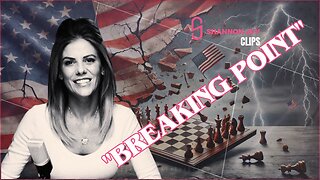Premium Only Content

What is TRADE SECRET?
✪✪✪✪✪
http://www.theaudiopedia.com
✪✪✪✪✪
What does TRADE SECRET mean? TRADE SECRET meaning - TRADE SECRET definition - TRADE SECRET explanation. What is the meaning of TRADE SECRET? What is the definition of TRADE SECRET? What does TRADE SECRET stand for? What is TRADE SECRET meaning? What is TRADE SECRET definition?
A trade secret is a formula, practice, process, design, instrument, pattern, commercial method, or compilation of information not generally known or reasonably ascertainable by others by which a business can obtain an economic advantage over competitors or customers. In some jurisdictions, such secrets are referred to as "confidential information" but are generally not referred to as "classified information" in the United States, since that refers to government secrets protected by a different set of laws and practices.
The precise language by which a trade secret is defined varies by jurisdiction (as do the particular types of information that are subject to trade secret protection). However, there are three factors that, although subject to differing interpretations, are common to all such definitions: a trade secret is information that:
Is not generally known to the public;
Confers some sort of economic benefit on its holder (where this benefit must derive specifically from its not being publicly known, not just from the value of the information itself);
Is the subject of reasonable efforts to maintain its secrecy.
These three aspects are also incorporated in the TRIPS Agreement in Article 39.
By comparison, under U.S. law, "A trade secret, as defined under 18 U.S.C. § 1839(3) (A), (B) (1996), has three parts: (1) information; (2) reasonable measures taken to protect the information; and (3) which derives independent economic value from not being publicly known".
Trade secrets are an important, but invisible component of a company's intellectual property (IP). Their contribution to a company's value, measured as its market capitalization, can be major. Being invisible, that contribution is hard to measure. Patents are a visible contribution, but delayed, and unsuitable for internal innovations. Having an internal scoreboard provides insight into the cost of risks of employees leaving to serve or start competing ventures.
In contrast to registered intellectual property, trade secrets are, by definition, not disclosed to the world at large. Instead, owners of trade secrets seek to protect trade secret information from competitors by instituting special procedures for handling it, as well as technological and legal security measures. Legal protections include non-disclosure agreements (NDAs), and work-for-hire and non-compete clauses. In other words, in exchange for an opportunity to be employed by the holder of secrets, an employee may sign agreements to not reveal their prospective employer's proprietary information, to surrender or assign to their employer ownership rights to intellectual work and work-products produced during the course (or as a condition) of employment, and to not work for a competitor for a given period of time (sometimes within a given geographic region). Violation of the agreement generally carries the possibility of heavy financial penalties which operate as a disincentive to reveal trade secrets. However, proving a breach of an NDA by a former stakeholder who is legally working for a competitor or prevailing in a lawsuit for breaching a non-compete clause can be very difficult. A holder of a trade secret may also require similar agreements from other parties he or she deals with, such as vendors, licensees, and board members.
As a company can protect its confidential information through NDA, work-for-hire, and non-compete contracts with its stakeholders (within the constraints of employment law, including only restraint that is reasonable in geographic- and time-scope), these protective contractual measures effectively create a perpetual monopoly on secret information that does not expire as would a patent or copyright. The lack of formal protection associated with registered intellectual property rights, however, means that a third party not bound by a signed agreement is not prevented from independently duplicating and using the secret information once it is discovered, such as through reverse engineering.
-
 1:26
1:26
The Audiopedia
10 months agoWhat is MOTTO?
48 -
 11:03
11:03
Melonie Mac
15 hours agoClair Obscure Expedition 33 Has Saved Gaming
41.2K34 -
 7:39
7:39
The Shannon Joy Show
16 hours ago🇺🇸 America's Breaking Point: Are We Ready to Toss the Board? 🎯
29K21 -
 10:00
10:00
Adam Does Movies
20 hours ago $3.12 earnedCEO Claims Netflix Saved Hollywood. Um, WHAT?!?! - Rant
42.1K9 -
 1:00:43
1:00:43
Trumpet Daily
21 hours ago $5.90 earnedThat Big, Beautiful Wall Around the Vatican - Trumpet Daily | Apr. 28, 2025
26.7K23 -
 12:40
12:40
Degenerate Jay
14 hours ago $0.92 earnedThe Perfect RoboCop Versus Terminator Game Needs To Be Made!
32.5K5 -
 8:17
8:17
VSOGunChannel
17 hours ago $1.26 earnedYou Were Put on a Government Watch List || DECLASSIFIED
30.6K10 -
 35:14
35:14
Steph & Kayls
19 hours ago $1.52 earnedSpicing Things Up: How To Navigate Adding A Third To The Bedroom | Ep. 4
37.9K14 -
 28:59
28:59
Film Threat
14 hours agoTHUNDERBOLTS* EARLY REACTIONS | Film Threat After Dark
38.2K5 -
 8:02:12
8:02:12
Rebel News
4 days ago $216.34 earnedELECTION NIGHT LIVE: Rebel News Canada coverage with Ezra Levant, Sheila Gunn Reid & Special Guests
454K249